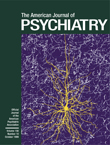For those of us who became psychiatrists in the 1950s and 1960s, Stewart Wolf is a familiar name. He was, by then, an eminent physician and scientist at the forefront of “psychosomatic” research. With Harold Wolff, Hans Selye, Roy Grinker, Stanley Cobb, and others, Stewart Wolf had put this branch of medicine and psychiatry on the map. He had received an honorary doctorate and prestigious awards, including APA’s Hofheimer prize for research in 1952. During his distinguished research career he studied the effect of emotional states, including stress, on the gastrointestinal system, the cardiovascular system, and endocrine function. He conducted important studies on the effect of placebos and on the effects of social integration and social supports on health and disease.
In the preface to Educating Doctors, Wolf states, “My aim here is to reexamine the responsibilities, goals, and activities of medical teachers, researchers and practitioners, and to encourage the reader to understand the problems facing medicine.” It is thus with considerable curiosity that I undertook to read this recent book, hoping that it would bring much- needed wisdom to the current quandaries. Unfortunately, neither the author’s stated intentions nor the implied promises are met in this frustrating book.
At the outset, it should be acknowledged that here and there throughout this fairly slim volume, one can experience the pleasure and comfort of encountering many ideas it would be difficult to disagree with: the importance of good character in physicians; the emphasis on human—i.e., psychological—as well as technological skills in effective medical practice; the usefulness of the clinical interview as a diagnostic tool; the impact of the social and economic environment on health; and the gains in knowledge from attention to the individual, rather than from exclusive focus on standardized large groups, in conducting medical research.
Frustration derives from the organization as well as the content of the book. The preface and the afterword are the most relevant to the aims of the book as well as the most timely. In between, there is little connection to these in the actual chapters and between the individual chapters, and there is so much repetition that it seems likely that this is a collection of lectures or essays that have apparently not been published previously. The book would hold more interest if these pieces had been published as a compendium, and under a different title. Sharper editing might have helped the relevance, the overall structure, the repetitions, and also the sloppy referencing.
The content of the book also presents difficulties. Although problems in current medical education, research, and practice are certainly identified, there are too many distortions and errors. One major leitmotif for the book is nostalgia for the good old days before World War II. Can one really long for the personal means of medical student selection when this resulted in the exclusion of minorities and women and often favored the sons of alumni and major financial supporters of the schools? In the face of evidence that sleep deprivation of physicians can lead to dangerous errors, can one still hold that it was better for doctors, and even for their patients, when interns and residents were not allowed to marry, did not get paid, and spent every other night working without sleep? Wolf deplores the decrease in the numbers of generalists—internists and pediatricians—being trained, although in the past few years the number of medical graduates going into primary care has actually increased. Although technology and specialization are generally recognized as pressing toward less personalized humane practice, it is not clear that curricula and physicians themselves are less attuned to these issues than they were in the past. With respect to research, my impression is that medical students and young physicians have more, rather than less, encouragement and opportunity to engage in research than they did in the earlier years mourned by Wolf.
In view of the emphasis on the individual, on the relevance of the individual’s personal history to his or her illness, and on the meaning of events, interactions, and symptoms, I found it odd that there is no mention or reference to psychoanalytic or psychodynamic contributions (although historical background of research and views is extensive and constitutes more than half the references). Given the major influence of psychoanalytic psychiatry on psychosomatic research and in medical schools in the years that Wolf writes about, one would have expected some mention, even if he were to question psychoanalysis on theoretical or empirical grounds.
Clearly, the book does not contribute to an understanding of the current crisis in medicine. It is dated: more than three-quarters of the references are from before 1985. Important present-day phenomena affecting medical education, research, and practice, such as managed care, the impact of computers, and the burgeoning of genetic and molecular research, are barely mentioned. There is little recognition of the entry of large numbers of women into the field, and to a female reader it becomes jarring for even the grammar of the book to assume that all current and future physicians are men. Beyond both the correct and the questionable identification of current problems in medicine, the book really does not offer either explicit or implicit solutions, unless one thinks that one can turn back time.
Having expressed serious criticism, I want to acknowledge that, read as separate essays, the chapters of this book can offer interesting and pleasant reading. There is informative historical information, clear description of elegant experiments and studies by Wolf and some of his contemporaries, and nice appreciations of what was, in some ways, a “golden age” in medicine.

